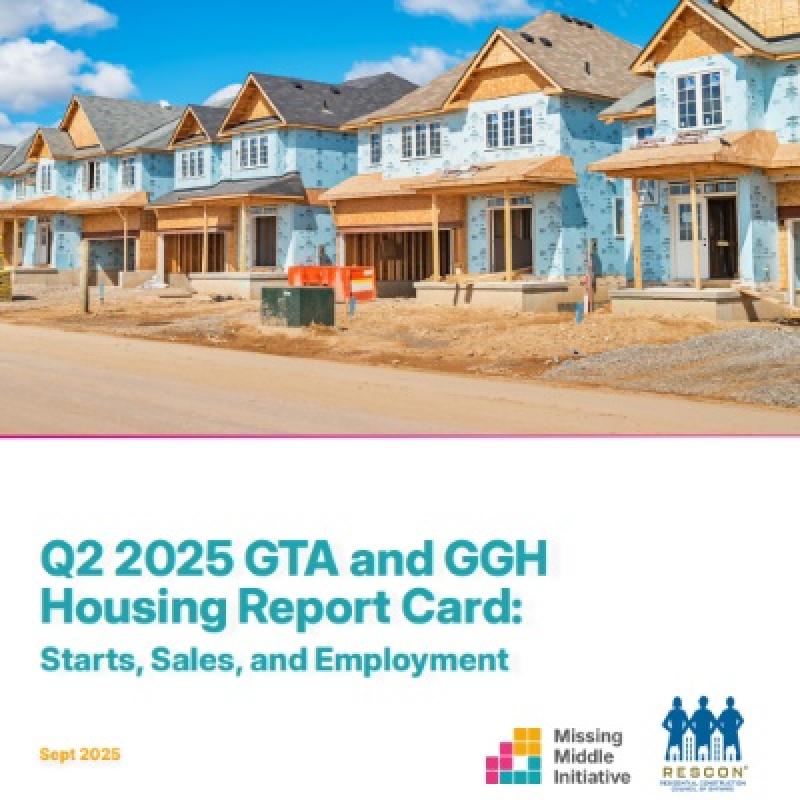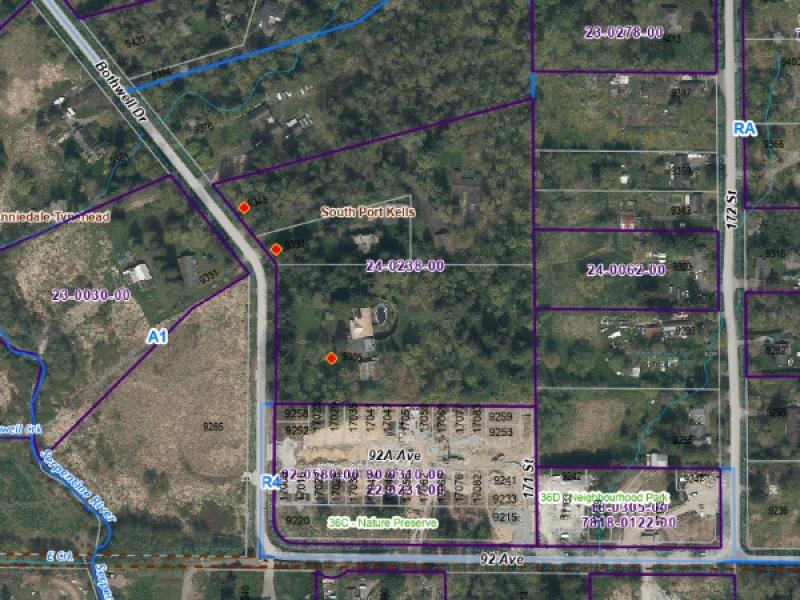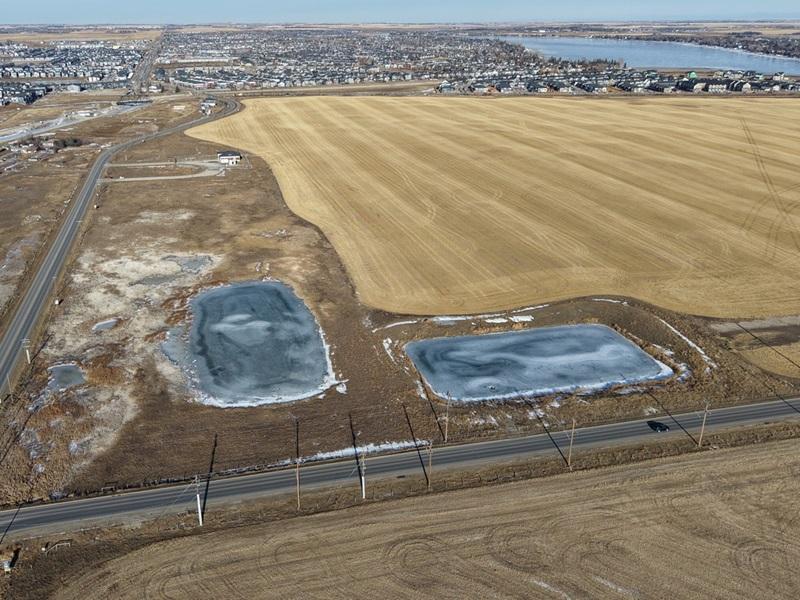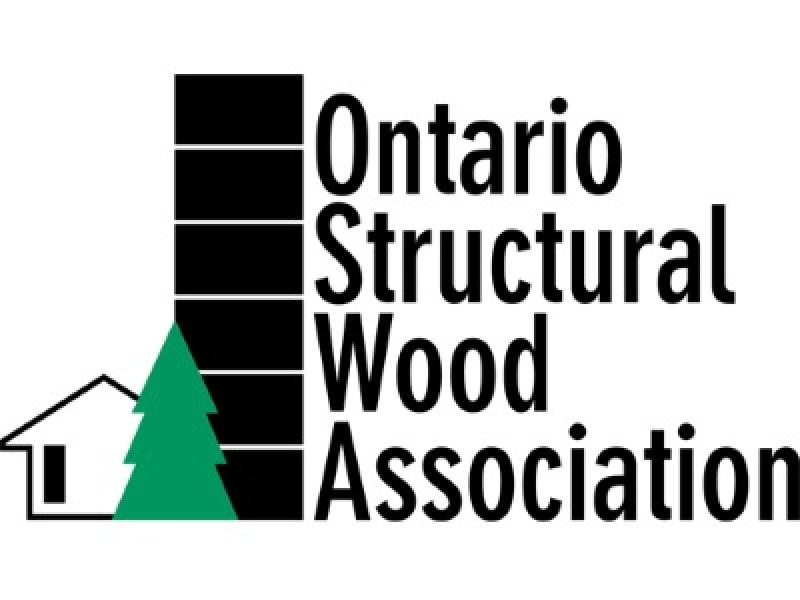
An industry group representing Ontario’s homebuilders has given almost two thirds of municipalities in Southern Ontario a failing grade on meeting their housing goals in the first half of 2025.
Vaughan-based Residential Construction Council of Ontario (RESCON) issued its report cards for 34 municipalities in the Greater Toronto Area and Greater Golden Horseshoe regions Monday morning. Of the 34 municipalities, 22 received an F, five took home a D, and seven got a grade of C or higher.
Comparing the first six months of 2025 to the average of the same period between 2021 to 2024, it found significant declines in housing starts, sales and industry employment across the municipalities. Total housing starts fell by 40 per cent, and pre-construction sales of ground-oriented housing (everything other than apartments) went down 70 per cent.
There were some high performers, however.
Brantford led the pack with an A-plus, followed by Milton with an A. Richmond Hill and Burlington earned a B grade. New Tecumseth, Pickering and St. Catharines received a C.
Virtually all of the region's largest cities including Toronto, Mississauga, Brampton, Hamilton and Oakville, received a grade of F.
Brantford saw housing starts skyrocket 272 per cent (driven by a staggering 1,885 per cent rise in apartment starts) and 1,555 jobs added, though it saw sales fall 88 per cent. The city west of Hamilton and Niagara Falls exceeded its housing start target by 126 per cent, reaching 1,130 against a goal of 500.
Compare that to Toronto, where housing starts were cut by 58 per cent, sales plunged 91 per cent and over 10,000 jobs in the housing sector were lost, the report states. Toronto failed to meet its target of 14,250 housing starts, managing to see only 4,660.
“The findings of this report are troubling and should set off the alarm bells for policymakers across all three levels of government,” Richard Lyall, RESCON’s president, said in the announcement.
RESCON's alarm bells
Housing starts are one of those alarm bells. Condo starts in the first half of 2025 went down 54 per cent and starts for ground-oriented housing fell 42 per cent. RESCON said the data shows the housing weakness is not just a condo market story.
However, purpose-built rental starts went up eight per cent in the same period, a ray of light in an otherwise bleak market.
RESCON noted housing starts are a lagging indicator for the health of the market, so “things are going to get worse before they get better.”
Looking at pre-construction sales, which the organization said is a better indicator, RESCON found pre-construction sales of condos nosedived 89 per cent, with a similar plunge for pre-construction sales of ground-oriented housing.
The industry organization identified this as a potential looming problem for the seven municipalities that received a C or higher, as much of it was driven by “unusually strong housing starts, rather than robust pre-construction sales.”
Like Brantford, Milton experienced a divergence between rising housing starts and employment against declining sales. The city saw its housing starts rise 113 per cent and 867 jobs added, but sales went down 62 per cent.
Poor housing starts hurt the economy, RESCON says
Struggling housing starts will trickle down to the economy, the RESCON report says.
The organization explained it takes an average of 3.8 years of employment to build a ground-oriented home and 1.5 years to build an apartment unit. With substantially fewer housing starts in the first six months of 2025 compared to 2021 to 2024, that translates to 24,195 fewer person-years of employment.
Lyall reiterated longstanding calls to governments to lower taxes and modernize the development process to kickstart the housing industry.
“We are in the midst of the worst housing crisis in a generation,” he said. “While the situation is bad it could get worse if governments fail to reduce the tax burden on new housing.”










